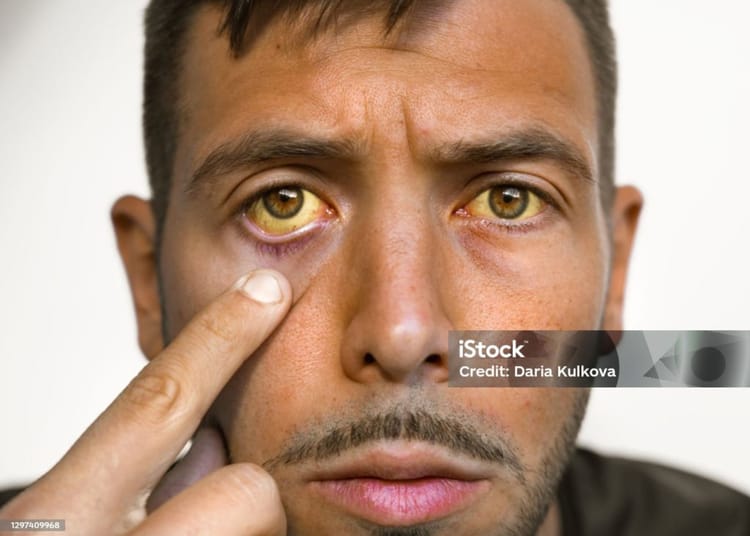Genital Shrinkage: Understanding Finasteride's Side Effect in Men


Explore the unexpected side effect of finasteride in men—genital shrinkage.
Finasteride is a medication primarily used to treat conditions like benign prostatic hyperplasia (BPH) and male pattern baldness. While it is effective for many, it has also been associated with a range of side effects, one of the most concerning being genital shrinkage. This article delves into the mechanisms behind finasteride, the potential for genital shrinkage, and what men should know about this side effect.
What is Finasteride?
Finasteride is a 5-alpha-reductase inhibitor that works by blocking the conversion of testosterone to dihydrotestosterone (DHT). DHT is a hormone linked to hair loss and prostate enlargement. By reducing DHT levels, finasteride can help alleviate symptoms associated with these conditions. Originally developed for the treatment of benign prostatic hyperplasia (BPH), finasteride has gained popularity as a treatment for androgenetic alopecia, commonly known as male pattern baldness. Its effectiveness in addressing these issues has made it a widely prescribed medication in urology and dermatology.

Uses of Finasteride
The primary uses of finasteride include treating male pattern baldness and managing symptoms of BPH. In men experiencing hair loss, finasteride can help regrow hair and prevent further loss. For those with BPH, it can reduce prostate size, improve urinary flow, and reduce the risk of complications. Additionally, finasteride is sometimes used off-label for other conditions, such as hirsutism in women, where excessive hair growth is a concern. The medication's ability to alter hormone levels makes it a versatile option for managing various androgen-related disorders.
How Finasteride Works
Finasteride inhibits the enzyme responsible for converting testosterone into DHT. This reduction in DHT levels can lead to various physiological changes, including hair regrowth and prostate shrinkage. However, these hormonal changes can also lead to side effects, which may include sexual dysfunction and changes in genital size. Patients need to discuss potential side effects with their healthcare provider, as the benefits of treatment must be weighed against these risks. Moreover, the onset of effects can take several months, requiring patience and adherence to the prescribed regimen for optimal results.
In clinical studies, finasteride has shown promising results, with many users experiencing noticeable improvements in hair density and a reduction in BPH symptoms. The medication is typically taken in a daily oral dose, and its long-term use has been associated with sustained benefits. However, ongoing monitoring by a healthcare professional is recommended to ensure that any adverse effects are promptly addressed and to evaluate the continued need for treatment. As research continues, the understanding of finasteride's mechanisms and its broader implications in hormonal health may further expand its applications in medicine.
Understanding Genital Shrinkage
Genital shrinkage refers to a perceived or actual reduction in the size of the penis and testicles. This side effect, while not universally experienced, has been reported by some men taking finasteride. Understanding the underlying mechanisms can help demystify this concern.
Mechanisms Behind Genital Shrinkage
The relationship between finasteride and genital shrinkage is primarily hormonal. By lowering DHT levels, finasteride may influence the size of the penis and testicles. DHT is crucial for the development and maintenance of male genitalia, and its reduction can lead to changes in tissue size and elasticity. Additionally, the hormonal changes induced by finasteride can affect blood flow and vascular health, potentially leading to a decrease in erectile function, which may further contribute to the perception of shrinkage. Understanding these biological processes is essential for men considering or currently using this medication, as it can help them make informed decisions regarding their treatment options.
Reported Incidence of Genital Shrinkage
While not all users of finasteride experience genital shrinkage, studies and anecdotal reports indicate that a subset of men may notice this side effect. Research suggests that the incidence is relatively low, but the psychological impact can be significant for those affected. The perception of genital size can be closely tied to self-esteem and body image, making this side effect particularly distressing. Furthermore, the stigma surrounding discussions of male genital size can exacerbate feelings of isolation and anxiety among those experiencing these changes. Many men may feel reluctant to speak openly about their concerns, leading to a lack of support and understanding from peers and healthcare providers. This silence can perpetuate a cycle of distress, highlighting the importance of open dialogue about sexual health and the potential side effects of medications like finasteride.
Other Side Effects of Finasteride
In addition to genital shrinkage, finasteride is associated with several other side effects. Understanding these can provide a more comprehensive view of the medication's impact on men's health.

Sexual Dysfunction
One of the most commonly reported side effects of finasteride is sexual dysfunction, which can manifest as decreased libido, erectile dysfunction, or issues with ejaculation. These symptoms may arise due to the hormonal changes induced by the medication and can lead to significant distress for some men. It is important to note that these side effects can vary in severity and duration; while some individuals may experience temporary issues, others might find these symptoms persist long after discontinuing the medication. This variability can make it challenging for patients and healthcare providers to navigate treatment options effectively.
Psychological Effects
Beyond physical side effects, finasteride has also been linked to psychological effects such as depression and anxiety. The changes in hormone levels may contribute to mood alterations, and the stress of dealing with sexual dysfunction can exacerbate these feelings. Some studies suggest that men taking finasteride may experience a decreased sense of well-being, which can impact their relationships and overall quality of life. Furthermore, the stigma surrounding male sexual health can prevent individuals from discussing these issues openly, leading to feelings of isolation and frustration. This underscores the importance of ongoing communication between patients and healthcare providers to address both the physical and emotional ramifications of finasteride use.
Other Physical Side Effects
In addition to the aforementioned effects, finasteride may also lead to other physical side effects such as breast tenderness or enlargement, known as gynecomastia. This condition can be particularly distressing for men, as it challenges traditional notions of masculinity and body image. Some users have reported changes in body fat distribution, which can further contribute to feelings of self-consciousness. Additionally, there have been rare reports of liver enzyme abnormalities and allergic reactions, highlighting the need for regular monitoring and evaluation during treatment. Understanding the full spectrum of potential side effects is crucial for men considering finasteride, as it allows for informed decision-making regarding their health and treatment plans.
Addressing Concerns About Genital Shrinkage
For men considering or currently taking finasteride, understanding and addressing concerns about genital shrinkage is vital. Open communication with healthcare providers can help manage these worries effectively. It's important to remember that while some men report experiencing changes, the incidence of such side effects can vary widely. Many studies suggest that the majority of users do not experience significant genital shrinkage, and for those who do, the effects may be temporary and reversible upon discontinuation of the medication.
Consulting with a Healthcare Provider
Men experiencing side effects from finasteride should consult their healthcare provider. A thorough discussion can help determine whether the benefits of continued use outweigh the potential risks. In some cases, adjusting the dosage or switching to an alternative treatment may be advisable. Additionally, healthcare providers can offer valuable insights into managing side effects through complementary therapies or lifestyle modifications, such as diet and exercise, which can enhance overall well-being and potentially mitigate some of the concerns associated with finasteride.
Exploring Alternatives to Finasteride
For those who are particularly concerned about the side effects of finasteride, exploring alternative treatments for hair loss or BPH is essential. Options may include other medications, lifestyle changes, or surgical interventions, depending on the severity of the condition and individual health factors. Natural remedies, such as saw palmetto, have gained popularity as potential alternatives, although scientific evidence regarding their efficacy is still emerging. Furthermore, lifestyle changes like maintaining a healthy diet rich in vitamins and minerals, regular exercise, and stress management techniques can also play a significant role in managing hair loss and prostate health, providing a holistic approach to treatment.
Managing the Psychological Impact
The psychological effects of finasteride, including anxiety related to genital shrinkage, can be profound. Addressing these concerns is crucial for overall well-being.
Support Groups and Counseling
Joining support groups or seeking counseling can provide men with a safe space to discuss their experiences and feelings regarding finasteride. Sharing stories and coping strategies can help alleviate feelings of isolation and anxiety.
Practicing Self-Care
Engaging in self-care practices, such as exercise, healthy eating, and mindfulness, can improve overall mental health. These practices can help mitigate some of the psychological impacts associated with taking finasteride and dealing with its side effects.
Conclusion: Weighing the Risks and Benefits
Finasteride can be an effective treatment for conditions like male pattern baldness and BPH. However, potential side effects, including genital shrinkage, should not be overlooked. Men considering this medication must weigh the benefits against the risks and discuss any concerns with their healthcare provider.

Ultimately, informed decision-making is key. Understanding the potential side effects, including genital shrinkage, and exploring alternative treatments can empower men to make choices that best suit their health and well-being. Whether opting for finasteride or another solution, the focus should always be on achieving a balanced and healthy lifestyle.
Explore Your Options with Confidence
Deciding on the right treatment for conditions like male pattern baldness or BPH can be challenging, especially when considering the potential side effects of medications like finasteride. At BestPharmaReviews.com, we understand the importance of making well-informed health decisions. Our extensive reviews of medications and supplements provide the clarity and insight you need to navigate your choices with confidence. For a deeper understanding of finasteride and other health options, Read More at BestPharmaReviews.com.
Thanks for stopping by.
BestPharmaReviews



